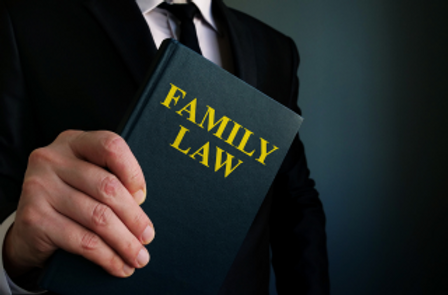Family law is a fundamental area of the legal system that governs matters related to family relationships, including marriage, divorce, child custody, adoption, and domestic violence. It is designed to protect individuals’ rights and ensure fair and just resolutions in often sensitive situations. In today’s fast-paced world, where family dynamics can vary greatly, the role of family law is more crucial than ever in protecting the rights of individuals while fostering healthy relationships within families. Family solicitors Winchester are very important when it comes to figuring out the complicated world of family law. They make sure that people’s rights are protected and that healthy relationships are built by giving them expert legal advice.
What Is Family Law?
Family law covers a wide range of legal problems that have to do with family relationships, such as
- Marriage And Civil Unions: These laws govern the legalities of marriage, including the rights and obligations of spouses, the legal recognition of same-sex marriages, and domestic partnerships.
- Divorce And Separation: Family law plays a critical role in managing the legal process of ending a marriage. It covers issues like the division of assets, alimony, and spousal support.
- Child Custody And Support: One of the most significant aspects of family law involves determining the custody of children, parental responsibilities, visitation rights, and financial support.
- Adoption And Guardianship: Family law also governs the legal process of adoption, ensuring that children are placed in safe, loving homes and that the rights of biological parents are protected during the process.
- Domestic Violence And Child Protection: People who are victims of domestic abuse are protected by family law. Because of this, attackers are more likely to be caught, and victims are safer from more harm.
The Importance Of Family Law In Protecting Rights
Just Family Law is essential in ensuring that the rights of all family members are respected and protected. These rights may vary depending on the context of each case, but family law strives to maintain fairness, balance, and equality in family-related disputes.
Protecting Individual Rights In Marriage And Divorce
In cases of marriage and divorce, family law supports both partners’ rights. For example, in a divorce, the law ensures that assets and properties acquired during the marriage are equitably divided. Family law also ensures that spousal support or alimony is provided if one party requires financial assistance after the dissolution of the marriage.
Through prenuptial or postnuptial agreements, individuals can also protect their assets and financial interests. Family law provides these tools to ensure that both parties enter and leave a marriage with their rights protected, preventing future legal disputes.
Ensuring The Best Interests Of Children
One of the most critical aspects of family law is its role in safeguarding the rights of children. The best interests of the children come first when parents split up or get divorced. Family law ensures that custody and visitation arrangements are made in the best interest of the child, ensuring their emotional, physical, and financial needs are met.
In many cases, family law also steps in to protect children from neglect, abuse, or unsafe living conditions. When necessary, courts may place children under guardianship or arrange for foster care to protect their well-being. Child support rules make sure that both parents pay for their child’s upbringing, which protects the child’s right to get the care and resources they need.
Addressing Domestic Violence
Family law plays a significant role in addressing domestic violence and protecting victims. Abuse in the home is a big problem that affects many people all over the world. Family law helps victims by giving them protective orders that make it illegal for the abuser to touch or come near the victim. These protective measures aim to shield victims and give them the time and space they need to rebuild their lives. Divorce Lawyers Winchester play a crucial role in ensuring that the legal process of ending a marriage is fair, providing guidance on the division of assets, spousal support, and child custody while protecting the rights of all parties involved.
In addition to restraining orders, family law provides victims with avenues for seeking financial compensation or support, securing child custody in abusive situations, and taking legal action to remove the perpetrator from the home. The law’s ability to intervene in these situations provides vital protection and ensures the safety and dignity of the victims.
Providing Legal Support In Adoption And Guardianship
Family law also controls the adoption and care processes, making sure that everyone’s rights are upheld. For adoptive parents, family law provides clear legal guidelines to ensure the adoption process is transparent, secure, and permanent.
Family law ensures that the child’s biological parents understand their rights throughout the adoption process, giving them the opportunity to make informed decisions. On the other hand, it ensures that adoptive parents follow the legal procedures required to provide a child with a stable and nurturing home. Guardianship laws also protect vulnerable individuals who need someone to make important decisions on their behalf, such as children or incapacitated adults.
Fostering Healthy Family Relationships
Family law is very important for keeping family ties healthy as well as protecting people’s rights. Legal guidelines provided by family law offer structure and clarity in complex, emotionally charged situations. For instance, clear custody arrangements help minimise conflict between divorcing parents, providing children with stability and preventing them from being caught in the middle of parental disputes.
In cases of adoption, family law helps create a secure and loving environment for children by providing a legal foundation for the new family structure. Similarly, in cases of domestic violence, the legal protection offered by family law gives victims the opportunity to break free from abusive situations and begin to heal.
Conclusion
The role of family law in protecting rights and fostering relationships cannot be overstated. It offers individuals and families the legal support they need to navigate difficult situations and ensures that justice, fairness, and the best interests of all parties are upheld. Whether through protecting children, addressing domestic violence, or facilitating legal adoption processes, family law is vital in maintaining the well-being and integrity of modern family structures. By providing clear, enforceable guidelines, family law helps individuals resolve conflicts, safeguard their rights, and build stronger, healthier families.







